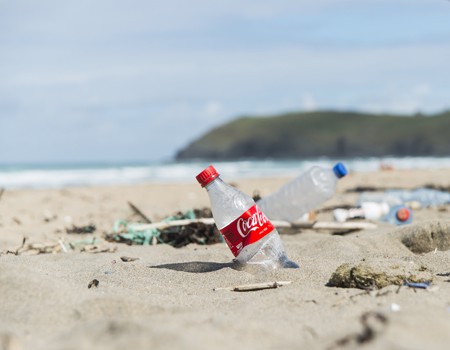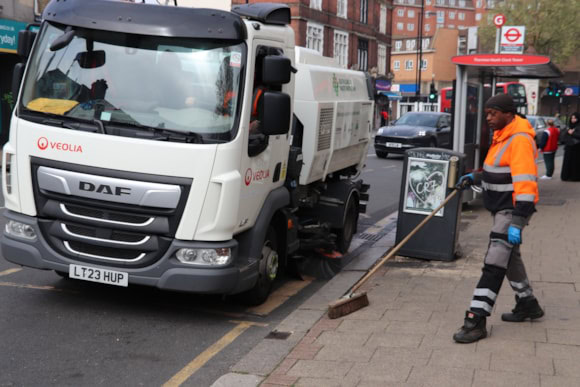Broadland launches recycling reward scheme
Broadland district council in Norfolk has launched a new scheme, ‘Bin it to Win it,’ in which residents can win £50 vouchers for recycling correctly.

The scheme, which is supported by collection contractor Veolia, will offer two households per month the chance to win £50 worth of vouchers for eliminating contamination in their recycling bins. This means every item should be clean, dry, empty and loose – not inside a carrier bag.
Each month, two household recycling bins will be randomly selected to be in for a chance to win. Broadland has in place an alternate weekly collection system for residual waste and recycling – which sees recyclables including paper and card, metal cans and aerosols, plastic bottles and pots, tubs and trays, and cartons collected commingled via a grey wheeled bin from households
Cllr John Fisher, portfolio holder for environmental excellence, said: “Residents in Broadland are very good at recycling, we currently have the highest recycling rate in the county at 47% but it is important that we all recycle correctly.
“Many people don’t realise that placing the wrong items or items which are wet, bagged or dirty in your recycling bin can cause problems meaning everything else in your recycling bin cannot be recycled.
“We’re hoping that Bin it to Win it will encourage residents to be thorough with their recycling, checking that every item is ready to be recycled.”
The first area which the council will be visiting is Aylsham, where the first winner will be selected next week (25 August).
_________________________________________________________________________________________
Resources published ahead of Recycle Week
WRAP has released a range of communication materials for local authorities and organisations to download and use during this year’s Recycle Week, which runs from 12-18 September.
2016 marks the 13th annual Recycling Week, with this year’s theme being ‘The Unusual Suspects’. The aim of the week is to encourage people to think about all those items that often get forgotten about when recycling at home.
The new resources, which are available via the WRAP website, can be used alongside the current range of ‘Good to Know’ materials, and include a supporters’ badge, web banners, social media images and empty belly poster, as well as a media pack with a customisable press release.
And, there is a series of ‘Good to Know’ recycling around the home templates, which have been adapted to include reference to ‘The Unusual Suspects’. The templates include posters, pull up banners, web banners, vehicle livery and an A5 double sided flyer.
Finally, there are advert fillers in three sizes— these cannot be customised for local areas but are intended for use by organisations that don’t have the ability or need to make any changes.
Materials are available for download but their use is embargoed until the start of Recycle Week.
_________________________________________________________________________________________
Resource Futures publishes Welsh waste review
Resource Futures for Wales in 2015 has published a comprehensive municipal waste study – which includes analysis of all Wales’ 22 local authorities performance on waste and recycling.

Completed for WRAP and the Welsh government, the aim of the study was to capture data on significant waste streams and deliver robust data sets for Wales as a whole as well as for the 22 individual local authorities.
The analysis was achieved over two seasonal phases through the analysis of kerbside collected refuse and food waste in every Welsh authority, and commingled recycling where appropriate.
Other waste streams such as HWRC residual waste, trade waste and litter were also incorporated into the analysis to give a full picture of waste in Wales.
The overarching waste strategy document ‘Towards Zero Waste’, and the ‘Collections Blueprint’ outline ambitious targets for local authorities with a view to making Wales a zero waste nation by 2050.
According to Resource Futures, the strategy is bearing fruit, with Wales achieving a 59% combined reuse/recycling/composting rate for the 12 months to the end of December 2015.
Resource Futures said: “What makes the Welsh model so effective is the combination of statutory targets for local authorities, continued financial investment into local authority waste sectors and the comprehensive ‘Collections Blueprint’ outlining best practice using evidence based research.”
_________________________________________________________________________________________
Charity calls for deposit on bottles and cans
Environmental charity Surfers Against Sewage (SAS) has launched a campaign calling for the introduction of a Deposit Return System (DRS) for plastic bottles and other drinks containers.

According to the charity, with 38.5 million plastic bottles and 59 million cans (see letsrecycle.com story) used in the UK every day, the introduction of a deposit scheme would ensure these containers are kept in the recycling economy rather than polluting the environment.
This would consist of a charge between 10-20p, which can be reclaimed by the consumer by depositing the product collection points. Across Europe there are 150 million people using deposit schemes across 11 countries including Germany, Sweden and the Netherlands, the charity claims.
The ‘Message In A Bottle’ campaign will involve a petition to government calling for DRSs across the UK, a letter-writing campaign targeting elected members UK parliaments, and social media actions asking brands that produce these products to support implementation of such a scheme.
Hugo Tagholm, chief executive at Surfers Against Sewage said: “Deposit return systems are a proven way of trapping these plastics and other materials in the economy rather than the environment, both conserving valuable resources and protecting our unique wild spaces.
“In countries where deposit return systems are already in place, up to 98% of plastic bottles are recovered for recycling, compared to around 56% here in the UK.”
He added: “A deposit return system for the UK is the logical, effective and powerful next step in turning the tide on the marine litter crisis.”
_________________________________________________________________________________________
Argyll and Bute moves to three-weekly collection
Argyll and Bute council, in Scotland, has announced the introduction of a new refuse collection schedule with a three-weekly collection for residual waste.

Local arrangements for recycling will remain the same, including where food waste and glass are collected.
According to the council, the move is aimed at achieving “the benefits possible through recycling” to deliver savings, following a “significant reduction in funding.” The council is also working towards Scottish government targets for recycling and reducing the amount of waste it sends to landfill.
The council has said that “for every tonne of waste that goes to landfill the council has to pay tax of over £80” and claimed that figures show every household in Scotland could save £460 a year by throwing away less food.
By recycling more there will be space in green (refuse) bins for more non-recyclable materials, the council has said, adding that a survey has shown that over 35% of the waste in green bins could be recycled – in one area the figure was over 45%.
In advance of the change, each household will receive detailed information and an individual waste calendar to ensure they know when their waste will be collected.
To help manage the move to a three-weekly green (refuse) bin collection, and increase recycling, households that use a blue (recycling) bin have the option of requesting a second.









Subscribe for free